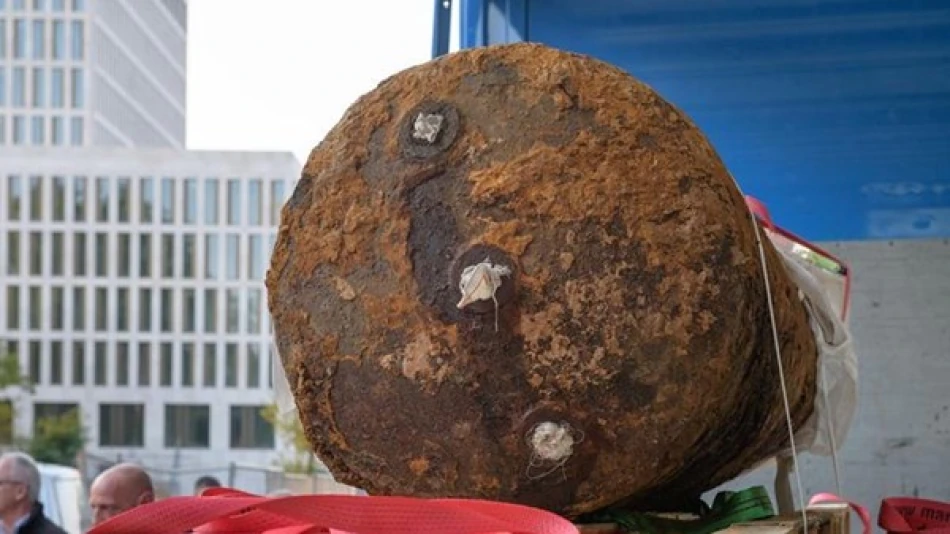
Thousands Evacuated in Berlin After Discovery of WWII Bomb: Unearthing the Past, Ensuring Public Safety
Berlin's WWII Ghosts: Massive Evacuation Reveals Germany's Ongoing Battle with Its Wartime Past
German authorities ordered thousands of residents in central Berlin to evacuate their homes Thursday evening after construction workers discovered a World War II-era bomb in the Spree River. The incident, one of Berlin's largest wartime ordnance evacuations in recent years, highlights how Germany continues to grapple with the deadly remnants of a conflict that ended nearly 80 years ago.
Scale of the Emergency Response
Police established a 500-meter security perimeter around the Fischerinsel district, with officers conducting door-to-door notifications to residents. The evacuation zone encompasses several embassies and local government offices, though authorities indicated that a hospital within the security area would not be evacuated.
The disruption extended far beyond residential areas. Ship traffic on the Spree River was suspended, streets were closed, and a subway line was temporarily shut down. Emergency shelters were set up for displaced residents, with operations expected to continue into the early hours of Friday morning.
Technical Challenges in Bomb Disposal
Authorities decided to defuse the bomb in place rather than attempt to move it, citing the river's muddy conditions as a complicating factor. This approach, while safer for transport, requires extensive evacuation procedures and reflects the delicate nature of dealing with decades-old ordnance that may have become increasingly unstable over time.
Germany's Persistent WWII Legacy
This evacuation underscores a reality that many Germans live with daily: their country remains littered with unexploded ordnance from Allied bombing campaigns during World War II. An estimated 2,000 tons of bombs and munitions are discovered annually across Germany, with Berlin being particularly affected due to its status as a primary target during the war.
The frequency of such discoveries has created a well-oiled evacuation system, but each incident still poses significant economic and social disruption. Construction projects routinely face delays, and residents have grown accustomed to emergency relocations that can last hours or even days.
Economic and Urban Development Impact
For Berlin's ongoing urban development, these discoveries represent both a logistical challenge and a significant cost factor. Construction companies must factor potential ordnance discoveries into project timelines and budgets, while the city bears the expense of emergency services, evacuations, and infrastructure shutdowns.
The persistence of this issue, nearly eight decades after the war's end, demonstrates how historical conflicts continue to shape modern urban planning and development. Unlike cities that can build freely, Berlin and other heavily bombed German cities must constantly navigate their buried past, turning routine construction into potential archaeological—and dangerous—excavations.
Most Viewed News

 Layla Al Mansoori
Layla Al Mansoori






